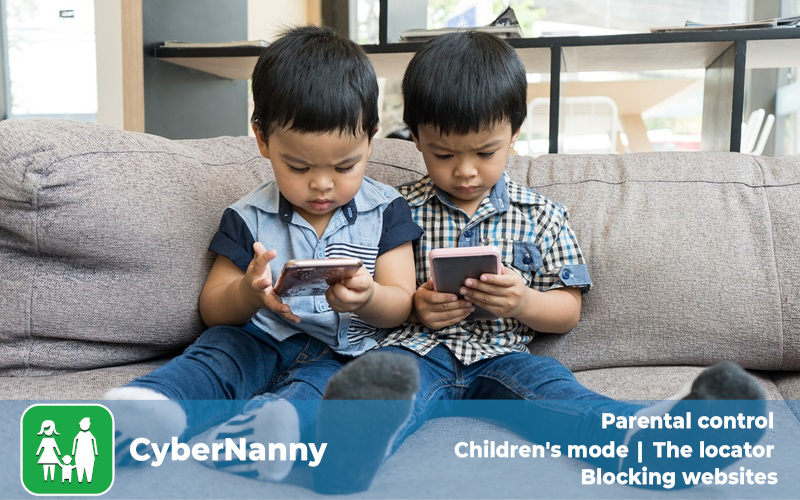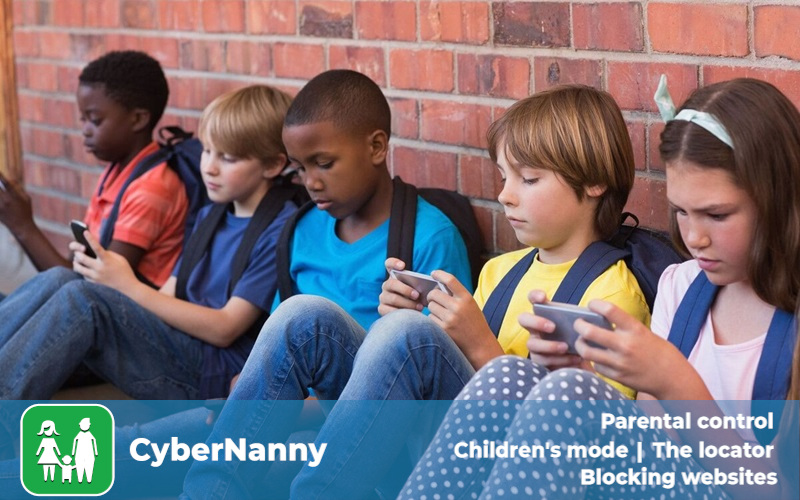Social networks: monitoring the correspondence of the child
In today’s technologically driven world, where digital platforms are an integral part of our daily lives, parents are confronted with the challenge of ensuring the safety and well-being of their children in the online space. Even the youngest of children are exposed to social media, necessitating parental vigilance as an essential aspect of contemporary parenting.
Enter the realm of CyberNanny, a mobile application designed specifically for parents seeking to establish a secure and nurturing online environment for their children. In this discourse, we will elucidate the significance of monitoring children’s online communication and how CyberNanny serves as a valuable tool in this challenging endeavor.
Why Should Parents Monitor their Children’s Correspondence on Social Networks?
- Internet Safety: Children, especially the younger ones, may not fully comprehend the potential risks associated with online communication. Social media platforms can become arenas where children encounter unpleasant situations such as bullying, scams, or exposure to inappropriate content. Monitoring their correspondence empowers parents to intervene promptly and ensure their children’s safety.
- Time and Activity Monitoring: Social media isn’t just a space for socializing; it can also be a source of endless content consumption. CyberNanny enables parents to monitor the time their children spend on social media and exert influence by setting necessary limits on their online activities.
- Detection of Risky Behaviors: By scrutinizing their children’s online conversations, parents can identify potential risks and observe changes in behavior. This proactive approach allows for early intervention in issues such as depression, stress, or involvement in unacceptable situations.
How Does CyberNanny Facilitate Parental Control on Social Networks?

Correspondence Monitoring: CyberNanny offers parents a user-friendly interface for monitoring their children’s correspondence on social networks like VKontakte and Facebook. Parents gain insights into both outgoing and incoming messages, enabling them to respond promptly to any unusual situations.
Installation Process:
Step 1. Download CyberNanny from Google Play and install it on your Android phone.
Step 2. Install it on your child’s Android phone.
Step 3. Maintain control of social media activities on your child’s phone.
Important Notes:
— The first 24 hours are free.
— One cabinet can connect up to 10 devices.
— Data is stored in the cabinet for 30 days from the moment of receipt.
Cautionary Information:
Parents should inform their child before installing parental controls, making them aware that their correspondence and location may be monitored.
It is imperative to exercise caution and only download CyberNanny parental control from Google Play to avoid falling victim to scammers or counterfeit applications. The protection of children online necessitates a balance between ensuring safety and fostering trust through open communication about monitoring practices.
What risks can there be for children on social media?

Modern social media has seamlessly integrated into the lives of children and young individuals, offering them avenues for communication, information sharing, and the cultivation of a digital identity. However, the benefits of social media come hand in hand with inherent risks that can adversely affect the safety and well-being of children. Let’s delve into some primary risks that underline the importance of parents monitoring their children’s correspondence on social media:
- Cyberbullying and Trolling. Children are susceptible to encountering aggressive behavior online, emanating from both peers and strangers. Cyberbullying manifests through threats, insults, public humiliation, and the dissemination of false information.
- Inappropriate Content. The online sphere hosts an abundance of content that may be unsuitable for children, ranging from violent images to explicit material that can impact their moral values and emotional well-being.
- Unsafe Dating. Children might inadvertently or intentionally engage with individuals online who pose a potential threat to their safety. This can escalate to perilous real-life encounters.
- Loss of Personal Information. Children may be oblivious to the risks associated with divulging personal information online. Sharing details such as school information, addresses, phone numbers, or locations can leave them vulnerable to potential threats.
- Social Media Addiction. Continuous online presence can lead to addiction, adversely affecting children’s physical and mental health. This addiction may result in reduced outdoor activity, disturbances in sleep patterns, and social isolation.
- Exploitation and Blackmail. Some perpetrators may exploit information garnered from children on social media for blackmail or other nefarious purposes, particularly if a child has confided in the wrong individuals.
Parents must be cognizant of these risks and take proactive measures to safeguard their children online. The act of monitoring children’s correspondence on social media, facilitated by our CyberNanny parental control app, substantially diminishes the likelihood of negative scenarios, ensuring the safety of children in the virtual realm.
For any inquiries, please feel free to reach out to our consultants.

